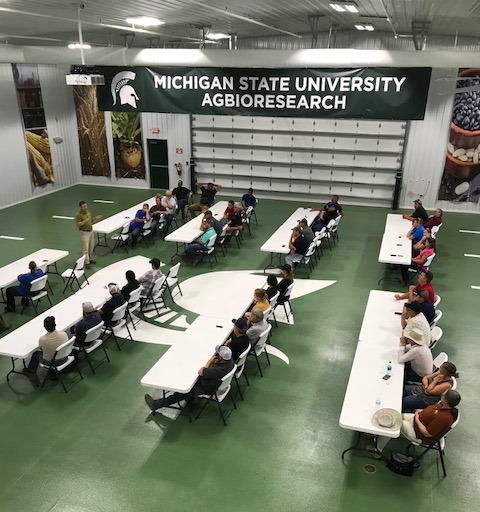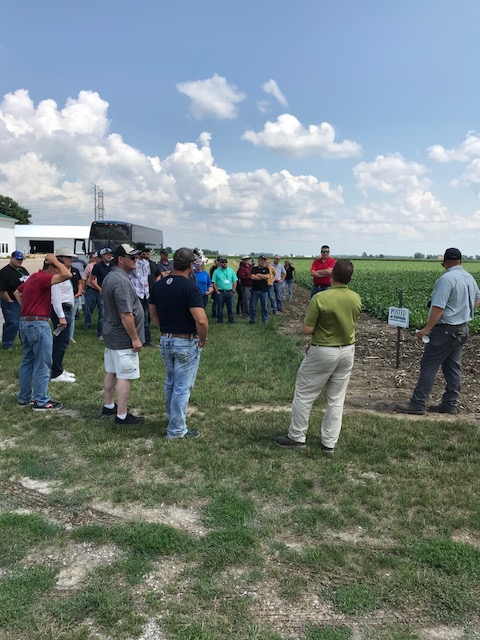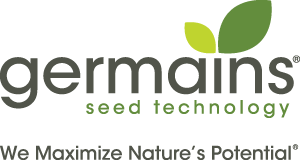McGinnis Institute of Beet Sugar Technology
This past July at Bay City Michigan, McGinnis Institute of Beet Sugar Technology hosted its Beet Sugar Agricultural School. This event is designed for new agronomists and or for those that want a refresher course in sugarbeet production practices and physiology. The Beet Sugar Development Foundation coordinates this annual five-day event in different production areas. This year 35 people attended the school representing most of the production areas in the USA, including representatives from Germany and Canada. The classes are taught by University Specialist, USDA Researchers, and professionals from the industry.
McGinnis Institute of Beet Sugar Technology School Experience
The first half of the day was taught by Dr. Christy Sprague weed control specialist from Michigan State University. Weed identification and control strategies are essential components in sugarbeet production. Understanding how to prevent and manage herbicide tolerant weeds has become increasingly important. Currently, Kochia, Palmer amaranth, waterhemp and horseweed are particularly troublesome. Dr. Linda Hanson USDA-ARS Plant Pathologist continued classes with identification and life cycles of bacterial, fungal and virus diseases of sugarbeets. Disease issues are different for each growing area, and new diseases/strains continue to emerge. Managing fungicide resistance is becoming increasingly important. Diseases such as Cercospora leaf spot have already become resistant to more than one fungicide.

Class Room Experience | McGinnis Institute of Beet Sugar Technology
The second day began with information on seed preparation technologies. This session was taught by Scott Pahl Sugarbeet Business Manager for Germains Seed Technology. Seed priming, coatings, and enhancements were discussed in great detail. Seed priming will speed up germination, break dormancy and increase environmental tolerance. Coatings have improved plantability and accuracy of seed spacing. Pelleted seed can also increase seed safety when applying seed treatments. Sugarbeet is the largest commercial user of seed pelleting technology. Kelly Sharpe Agronomist and Sales Manager for GK Technology spent the afternoon discussing the importance of adjusting harvesters to minimize beet injury, harvest losses and reduce tare.
On day three the group toured the Michigan Sugarbeet Production area. The growing area has temperatures that are moderated by the Great Lakes. Fields are very flat, and most are tile drained. Michigan has the second most diverse agriculture in the USA. The tour included looking at sugarbeet fields, harvesting equipment, and other crops. One on one discussion with sugarbeet producers was very interesting learning about Michigan production systems. Touring the 400 acre Michigan State University Ag Bio Research farm was also noteworthy. At this facility sugarbeet and dry edible bean research is a priority. Research is conducted by USDA-ARS, University and Michigan Sugar Researchers.
On day four Dr. Karen Fugate Research Molecular Biologist USDA-ARS topic was Sugarbeet Physiology. Factors that influence growth and development was covered in depth. These included seed germination, shoot/root development, and reproductive growth. Because a sugar beet is made up of about 75% water of particular interest was the factors that influence sucrose accumulation. These include solar interception, nitrogen fertilization, disease, and genotype. Sugarbeets typically contain 16-18% sucrose, but higher levels of 20-23% are attainable.

Student Tour the Fields
The last day classroom sessions began with Keith Kalso Ag Operations Manager for Michigan Sugar. Discussion included principles of optimal beet storage and management. When beets are stored, it is very critical to reduce tare, minimize bruising and keep beets cool to reduce respiration. Sugarbeet respiration in unfrozen storage piles on average can reduce sucrose by .5 pound per ton per day. Michigan Sugar Company has also experimented with many storage systems including a hoop barn, ventilated piles, and field storage.
The final session was field record keeping, taught by Mike Weiss Programmer/Analyst for Michigan Sugar Company. He developed Michigan Sugar Company’s grower computer field record keeping system. This record keeping system collects field information, fertilizer/chemical applications and planting records. It can be updated thru a mobile record keeping-MSC App. Each time a grower/field consultant enters a field. Company analyst can use the record keeping system to identify what practices may be improving yield and quality. By completing the field information growers can also be notified by text or email when timely leafspot fungicide applications should be applie
Overall the Beet school is an excellent education opportunity to learn about sugarbeet production. The 2019 Beet Sugar Agriculture School is tentatively scheduled to take place in the Willamette Valley in Oregon. Attendees will have the opportunity to tour sugarbeet seed fields and processing facilities. Those interested in attending should contact the Beet Sugar Development Foundation, Paul Pfenninger at 989-225-6719 or paul@bsdf-assbt.org.
